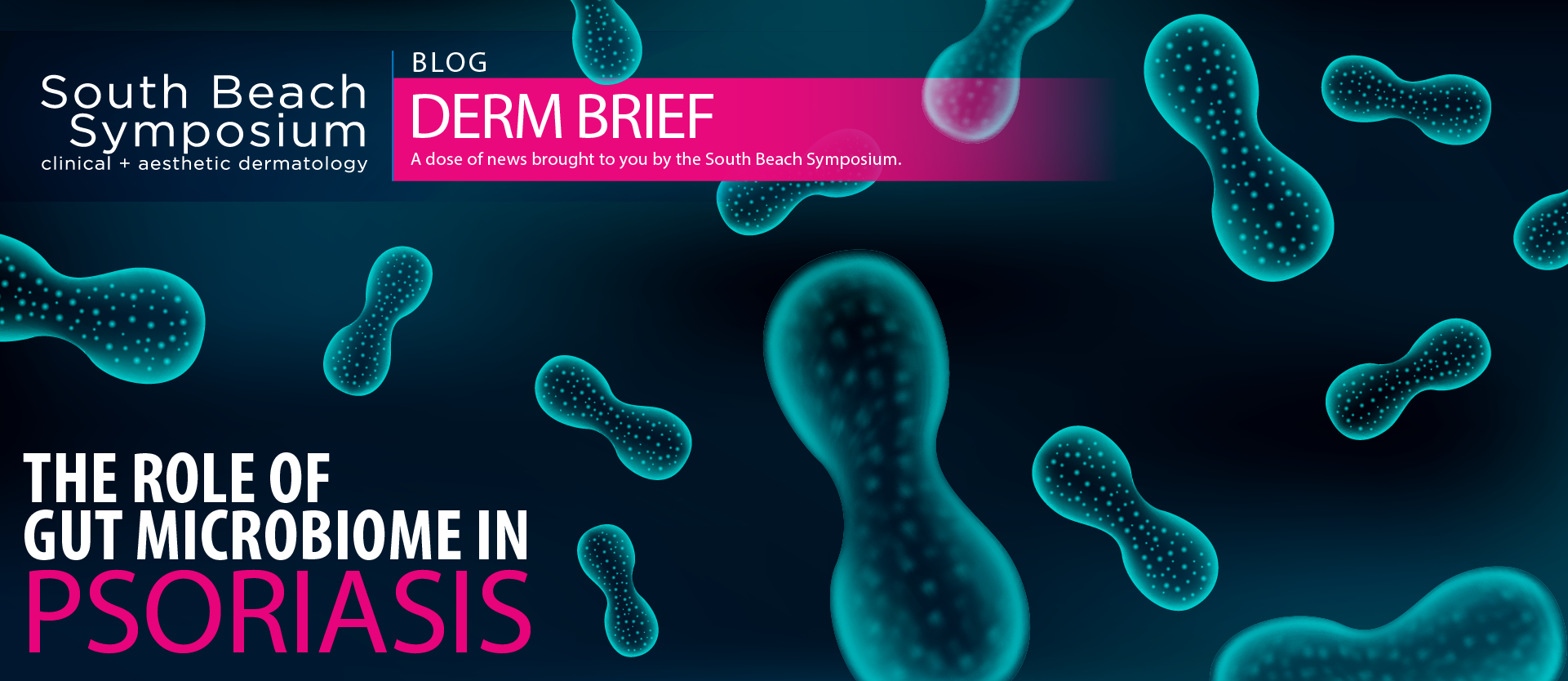The body of clinical literature concerning psoriasis is continuously growing as the disease’s many unsolved mysteries continue to puzzle investigators. While research has yet to uncover a cure for psoriasis, significant developments in recent years have enabled the development of therapies that can drastically mitigate associated symptoms and improve patient quality of life.
A new area of psoriasis research explores the potential implications of the gut microbiome in disease pathogenesis, revealing variations in bacterial compositions found between healthy control groups and patients with psoriasis. In a study recently published in the International Journal of Molecular Sciences, researchers from the Mie University Graduate School of Medicine in Japan point to potential for novel treatment strategies centered on the gut microbiome.
The Gut-Skin Connection
Recent years, the skin and gut microbiome connection has become increasingly explored by the scientific community. Compared with that of normal skin, the microbiome of psoriatic lesions has been reported to present an abundance of Streptococcus and Staphylococcus genus as well as a lessened amount of Propionibacterium genus. Although, reports are controversial and whether the diversity of bacteria is decreased or not remains unclear. Whether gut bacteria cause inflammation or result from inflammatory activity is also unknown.
Nonetheless, research has shown significant differences between the gut microbiome of health controls and psoriasis patients, indicating the potential role of gut dysbiosis in disease pathogenesis.
The intestine holds diverse bacterial species, evidence of the role of microbiome in several biological processes. These microbial communities are influenced by environmental and dietary factors that and can have immunomodulatory effects.
Changes in Microbiome Linked to Psoriasis
Led by Mayumi Komine, MD, PhD, a team of researchers analyzed the gut microbiome of inflammatory skin model mice by analyzing the 16S rRNA gene as well as levels of Staphylocuccus and Streptococcus genus in their fecal microbiome.
Both types of bacteria as well as recessive control bacteria were orally administered to antibiotic-treated wild type mice to develop an imiquimod-induced psoriasis-like skin inflammation model for the study. Skin inflammation examined included ear thickness and histopathological findings. Exacerbated skin lesions with elevated TNF-α, IL-17A, IL-17F, and IL-22 inflammatory cytokines were found in both bacterial genus groups.
Dr. Komine and his colleagues report finding an association between skin inflammation severity and certain gut bacteria manifesting in the form of a vicious cycle – skin inflammation spurs gut bacteria strains which in turn worsen inflammatory levels. The antibiotic treatment of mice was found to reduce the activation of T-helper 17 cells leading to milder inflammatory symptoms; however, the cause of the beneficial effect was not clear.
“Knowledge in skin resident cells are preferential to topical treatment, however, accumulating evidence in the gut–skin axis would favor a nutritional approach or signal inhibition to change microbiome composition,” Dr. Komine commented in a press release.
As the first in vivo examination of the role of Staphylococcus and Streptococcus in psoriasis pathogenesis, the findings implicate the significance of the gut microbiome in cases of this skin condition. This may inform future clinical treatment strategies for inflammatory skin diseases, encouraging a systemic approach versus one targeting cutaneous symptoms.
















